US Supreme Court Worked on Rigged Elections to Help Take Down Roe
The effort to take down abortion protections from the Conservative Right has been ongoing and multi-layered - the Dobbs decision was just an end cap to a very long game plan.

(The following was originally published in SHERO on May 17, 2022.)
The content of the Alito draft should not have come as a shock. It has been the goal of the Republican Party to overturn Roe v. Wade for decades by using the Heritage Foundation and Federalist Society to pack conservative judges on our highest courts.
In July of 2021, the Supreme Court delivered a severe blow to the Voting Rights Act of 1965, which was considered to be the crowning achievement of the civil rights movement, and the nation’s best defense against racially discriminatory voting laws. The Court’s ruling in Brnovich v. Democratic National Committee now makes it substantially harder for voters to challenge voter suppression laws, hacking away at federal courts’ powers to protect Americans’ access to the ballot box.
Another indication of where this Court was heading came in 2022, when the Conservative majority on the Supreme Court allowed the State of Alabama to continue to wage war on voting rights that primarily targeted minorities. The Court decided to throw out new districts for the state legislature in Wisconsin that fall, that had been picked by that state supreme court.
The Court’s conservative majority seemed to go out of its way to attack the Voting Rights Act, when they again were extremely stringent with the limits of the Voting Rights Act. By narrowing the interpretation of the VRA with regard to racially discriminatory voting practices, the Court found that redistricting in Wisconsin was not permissible, even when it was used to protect minority voters. This move ultimately made it more difficult for litigants to justify considering race when district lines are redrawn.
While it appears clear that the conservative majority of the United States Supreme Court is intent on striking down abortion protections found in Roe v. Wade and Casey v. Planned Parenthood, the clearest indicator of the intention of the Court to roll back civil liberties began once Amy Coney Barrett took her seat on the Court and the majority was established. Given this progression of restrictions, we should be asking ourselves what right will be struck from our own established laws next.
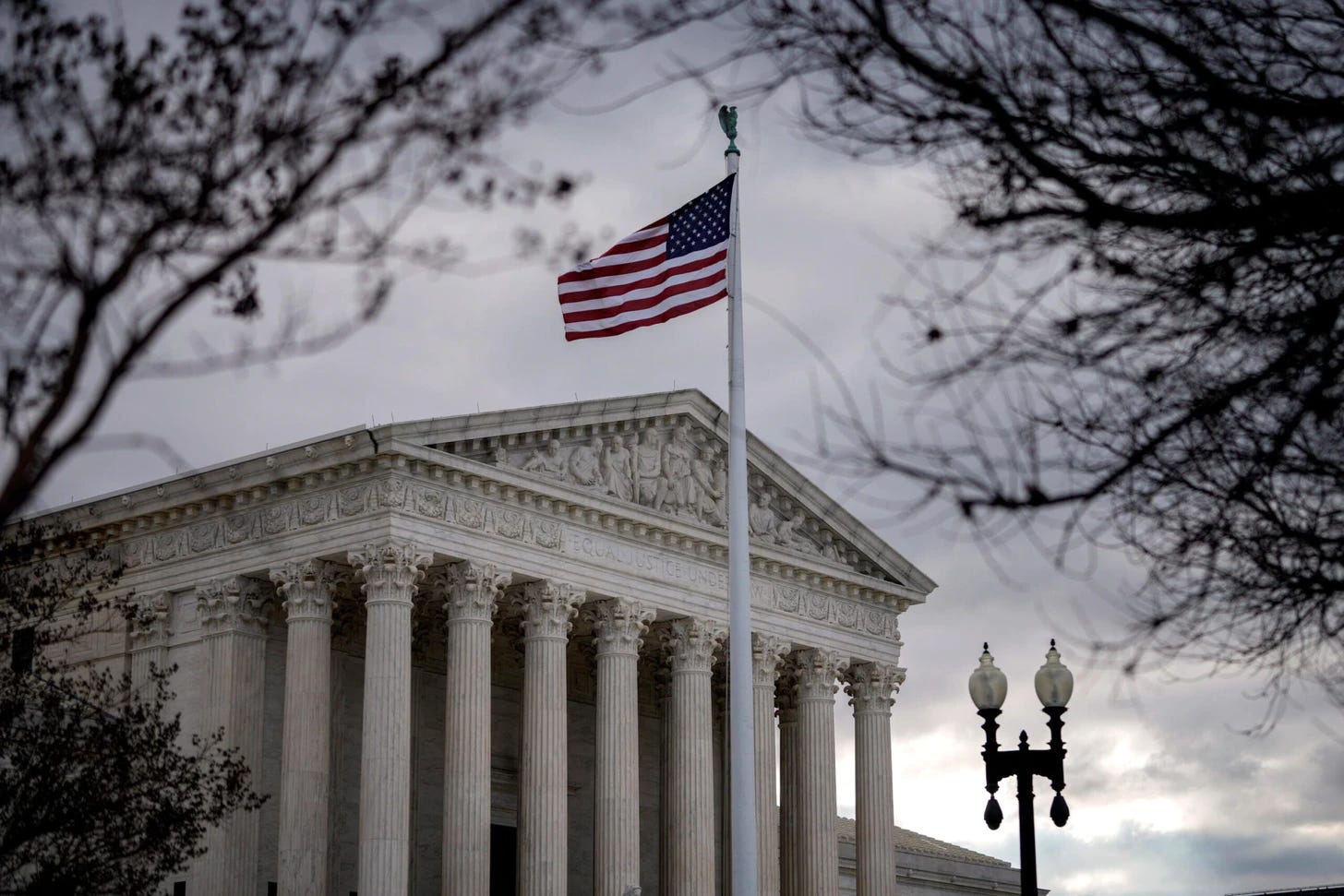
The US Supreme Court issued a stunning decision in February of 2022, granting a request from Alabama Republicans to put a lower court ruling on hold. That earlier decision from a three-judge panel in the state found that a newly drawn congressional district map, made by Alabama Republicans, had violated the Voting Rights Act by denying Black voters a new district.
The lower court determined that in order to comply with Civil Rights Law, there should be two districts — rather than just one — in which Black voters were a sizable portion of the electorate. The federal three-judge panel in Alabama issued a 225-page ruling in January of 2022, that found plaintiffs are “substantially likely” to prevail on claims that the current districts violate the Voting Rights Act, because the latest Census 2020 data supports the addition of another minority district.
“Black voters have less opportunity than other Alabamians to elect candidates of their choice to Congress,” the panel stated. “We find that the plaintiffs will suffer an irreparable harm if they must vote in the 2022 congressional elections based on a redistricting plan that violates federal law.” The congressional map, as previously approved by the state, ultimately preserves a nearly 30-year plan of having a single majority-minority congressional district — which would also be the 7th stronghold in west Alabama.
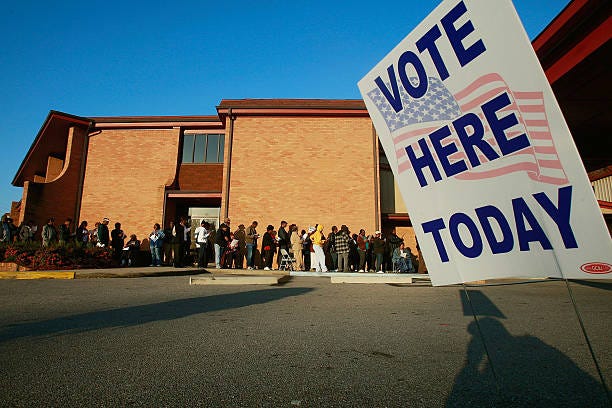
In this early February 2022 decision, by a 5-4 vote, with Chief Justice Roberts joining the court’s three liberal members in dissent, the US Supreme Court issued a brief order, which included no reasoning, that ultimately announced a lack of conservative, majority support for future voter rights challenges based on claims of race discrimination.
The Supreme Court’s order was provisional, and while it stopped the enforcement of the lower court’s decision, this was only temporary as the case was allowed to move forward. Supreme Court Justices said in that ruling that they would formally hear Alabama’s appeal of the lower court’s ruling, but they would not hear it right away. Moreover, it was not likely that oral arguments will be set before this next fall term, which means that the attempt by Republicans in Alabama to gerrymander another congressional district succeeded before the next 2022 Midterm Election.


The timing of this order and the way in which the slim Conservative majority of the Supreme Court issued the ruling is especially suspect given the immediate lack of legal recourse for minority voters in Alabama before the next pivotal election. This is also the first case to reach the Supreme Court that involves the redrawing of political boundaries based on 2020 census results, and this latest precedent could affect future redistricting in other states that have recently had minority population growth.
The Supreme Court said it would hear Alabama’s challenge to the lower court ruling that declared the maps void. That appeal was not heard until the Court’s new term began in the fall of 2022. As a practical matter, the Court’s action allowed Alabama Republicans to use their map for the 2022 Midterm Elections.
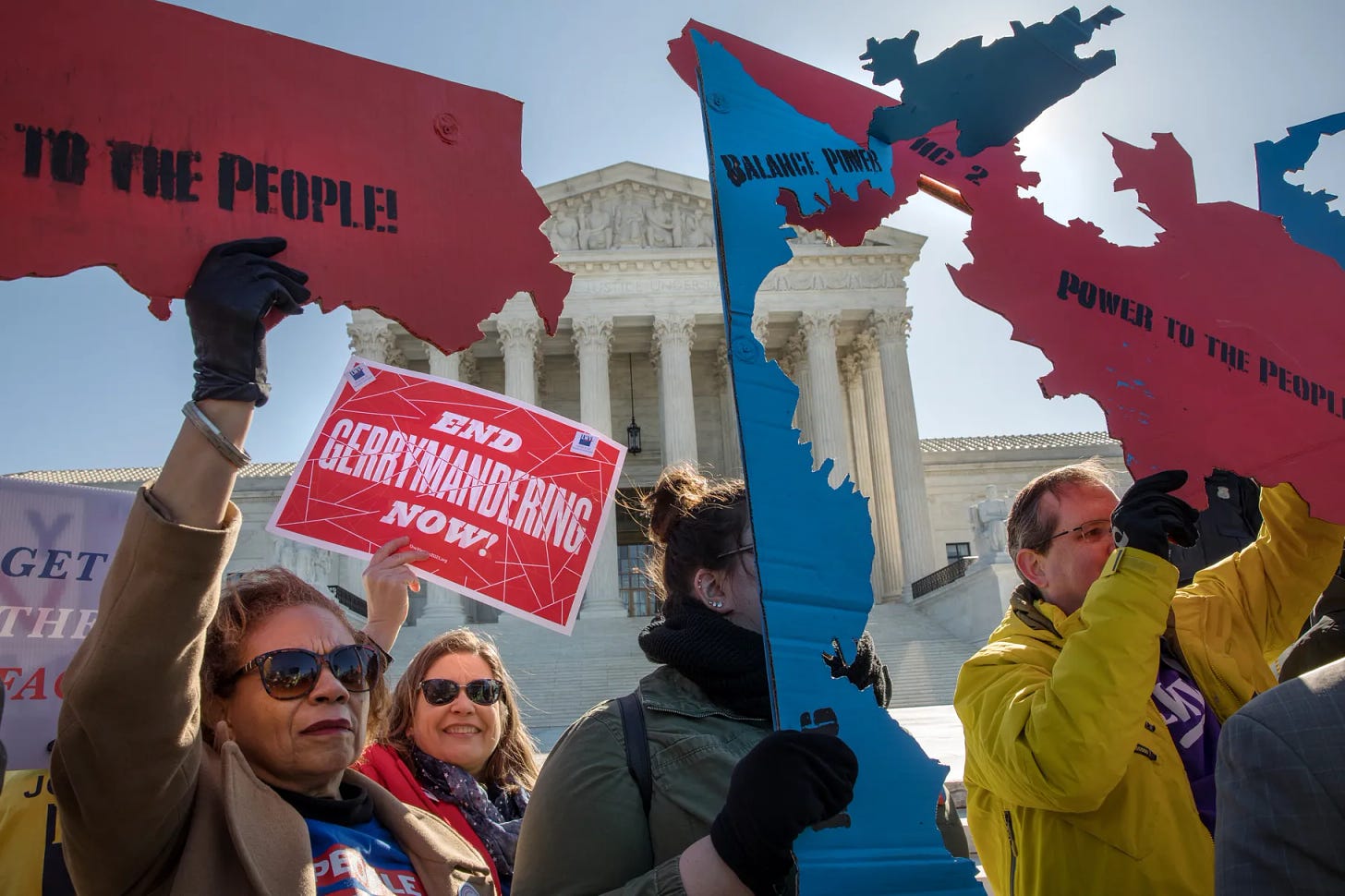
This recent Supreme Court decision, which was only possible due to Donald Trump’s placement of three new Justices on the bench, has now ensured that minority voters in Alabama will continue to have disproportionate access to the ballot box for future elections.
While this might seem like a small loss given the decades of Republican dominance in the state, this recent Supreme Court decision has effectively bolstered a Republican strategy to disenfranchise voters who will likely vote against them. Moreover, it establishes a bastardized legal pathway to continue to suppress voters, based on their race, all over the country — likely in bigger districts next time.
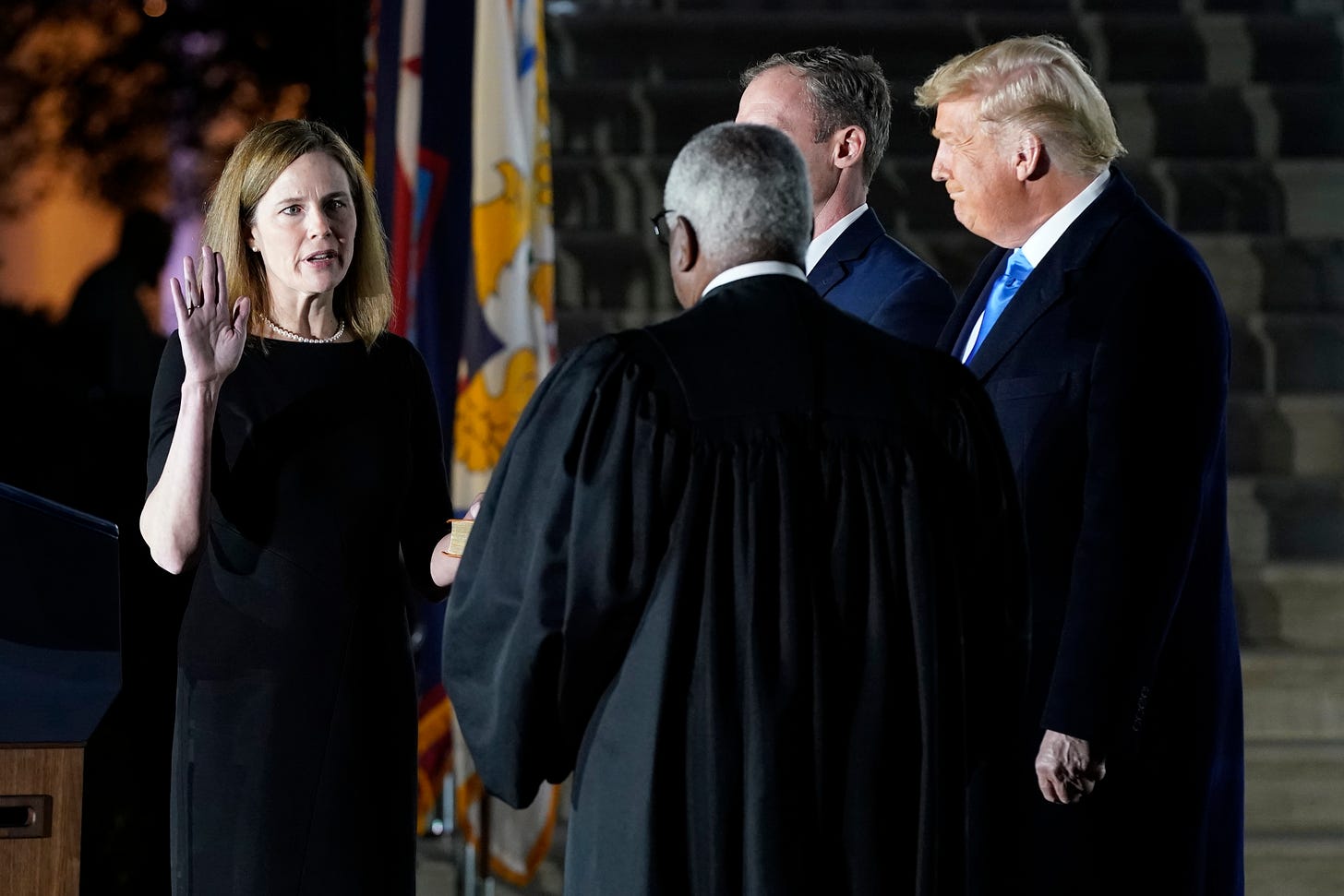
Trump’s Supreme Court, brought to you by the hard-working folks at McConnell Cheat ‘em and Scam ‘em, Inc., has now issued a decision that has tipped their hand on what they intend to do, and the consequences will be disastrous. What’s worse — this delay in judicial process is really a delay in judicial justice, one that has been perfectly timed to coincide with the next pivotal election.
Make no mistake, the argument that the US Supreme Court is not a political animal, and is capable of impartiality and balance, is a relic theory and continues to be mocked each time this slim Conservative majority issues another opinion. Perhaps the most dire aspect is that Republicans, who are in full control of the highest court in the land, are no longer trying to disguise their agenda, and sitting Supreme Court Justices — with lifetime tenure — are not trying to disguise their allegiances.
Amee Vanderpool writes the SHERO Newsletter and hosts the live SHERO podcast on Callin. She is an attorney, published author, contributor to newspapers and magazines, and analyst for BBC radio. She can be reached at avanderpool@gmail.com or follow her on Twitter @girlsreallyrule.
Paid subscriptions and one-time tributes embedded in each article allow me to keep publishing critical and informative work that is sometimes made available to the public — thank you. If you like this piece and want to support independent journalism further, you can forward this article to others, get a paid subscription or gift subscription, or donate once, as much as you like today.

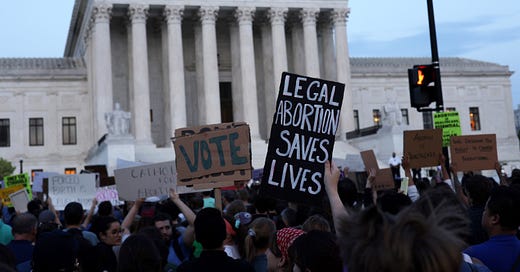


Every freedom conscious American should be outraged by this slanted SC decision.
America has two major political parties: the Democratic Party that believes in democracy and the Nazi Party that believes in fascism, insurrection, bigotry, racism, white supremacy and treason. Why are Nazis called "*republicans*"? The Nazis do not believe in a republic. Why are Nazis referred to as "*conservatives*"? Fascists are not "conservatives".